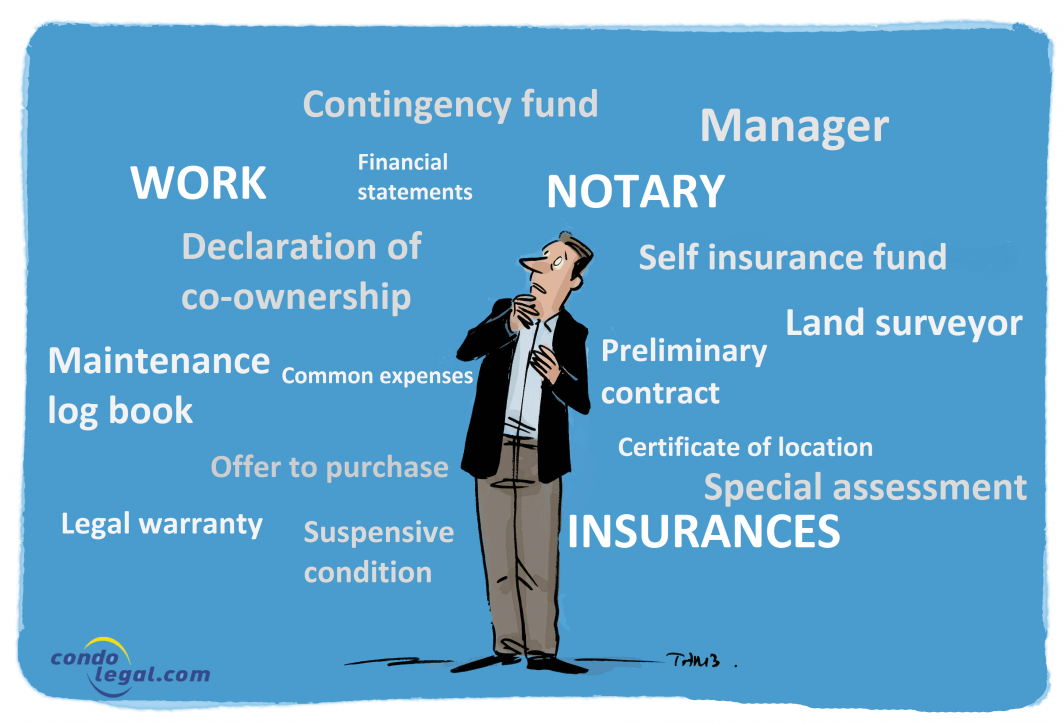 For the promising buyer, the offer to purchase is a way to reserve a property on conditions that he sets himself. When signing an offer to purchase, it may be that certain aspects surrounding the sale are beyond its control. This will happen, for example, if they have to sell their principal residence before buying, or if they need to get a mortgage before acquiring the new property. To this could be added another imponderable, that is to say that it may lack information to carry out a due diligence verification before the purchase. For this reason, offers to purchase generally include an obligation that is described as conditional, which is recorded as a suspensive condition.
For the promising buyer, the offer to purchase is a way to reserve a property on conditions that he sets himself. When signing an offer to purchase, it may be that certain aspects surrounding the sale are beyond its control. This will happen, for example, if they have to sell their principal residence before buying, or if they need to get a mortgage before acquiring the new property. To this could be added another imponderable, that is to say that it may lack information to carry out a due diligence verification before the purchase. For this reason, offers to purchase generally include an obligation that is described as conditional, which is recorded as a suspensive condition.
Clause with suspensive conditions
This type of clause allows the future buyer of a property to renounce the offer to purchase. It constitutes conditions that must be met in order to validate the offer to purchase. These suspensive conditions must depend on third parties and not on the goodwill of the seller or buyer. To ensure that he is not caught off guard, the offer to purchase must be conditional on:
For these conditions to be effective, it will be necessary to include escape clauses in the offer to purchase, for example suspensive conditions that will allow the buyer to withdraw from its offer, if necessary. In order to prevent these clauses from being subject to interpretation, their wording must be precise and adequate. They will also have to allow sufficient time, so that the promising buyer has an adequate reaction time before they expire.
Most common suspensive conditions
Offers to purchase almost always contain the following suspensive conditions:
The offer to purchase should include a clause providing for a mechanism for reporting a defect discovered as a result of receipt of the pre-purchase inspection report. This clause should also set out the rights and obligations of the parties in such a case.
Suspensive conditions specific to the co-ownership
The offer to purchase must also be conditional on the promising buyer being able to conduct various checks with the syndicate of co-owners, whose conclusions must meet his expectations. In particular, it will be necessary to check:
Suspensive conditions relating to receipt of the pre-purchase inspection report
The promise to purchase is generally conditional on the buyer being able to have the building, including all common areas, inspected by a building inspector or a professional within a period determined by the promise to purchase following its acceptance. In the circumstances, the seller must obtain all the required authorizations from the board of directors of the syndicate of co-owners to do this. In the event that the inspection report reveals the existence of a factor relating to the immovable, likely to significantly reduce its value or income or increase its expenses, the promising buyer must notify it the seller, in writing, and provide him with a copy of this report. Once notified, the promise to purchase becomes null and void. However, if the promising buyer neglects to notify the seller within the time period and in the manner provided in the promise to purchase, he is deemed to have waived the benefit of this suspensive condition.
Lifting of suspensive conditions
When the suspensive conditions have allowed the promising buyer to make all the verifications to his full satisfaction and these conditions have been lifted, for example due to the granting of mortgage financing, a conclusive examination of the various registers of the co-ownership and an inspection report that meets expectations, the latter will then be able to proceed with the transaction with full knowledge of the facts.
Conversely, if one of the conditions of the offer to purchase is not met, the promising buyer must inform the promising seller within the time limit. This could, for example, be the case where the syndicate or the seller has not provided all of the requested documents. Consequently, all the commitments to which they have subscribed will become null and void. The parties involved will remain there, and the promising buyer may request the refund of the deposits paid.
 WHAT YOU SHOULD KNOW! Article 1068.2 of the Civil Code of Quebec requires the syndicate of co-owners to give the promising buyer the documents or information enabling the latter to make an informed choice. This article mentions that documents and information must be provided diligently to the promising buyer, at the latter's expense, subject to the provisions relating to privacy, including in particular articles 35 to 41 of the Civil Code of Québec. The syndicate must inform the owner in question of all the documents or information it has thus provided to the promising buyer, so that all parties have the same information.
WHAT YOU SHOULD KNOW! Article 1068.2 of the Civil Code of Quebec requires the syndicate of co-owners to give the promising buyer the documents or information enabling the latter to make an informed choice. This article mentions that documents and information must be provided diligently to the promising buyer, at the latter's expense, subject to the provisions relating to privacy, including in particular articles 35 to 41 of the Civil Code of Québec. The syndicate must inform the owner in question of all the documents or information it has thus provided to the promising buyer, so that all parties have the same information.
 WHAT TO KEEP IN MIND: The Promise to purchase - Divided co-ownership form of the Organisme d'autoréglementation du courtage immobilier du Québec (OACIQ) includes a section that makes the promise to purchase conditional on the examination and verification of the declaration of co-ownership, or any other documents that may be required as well as all the amendments that have been made and to certain other documents held by the syndicate including, in particular, the minutes of the board of directors and the meeting of the co-owners.
WHAT TO KEEP IN MIND: The Promise to purchase - Divided co-ownership form of the Organisme d'autoréglementation du courtage immobilier du Québec (OACIQ) includes a section that makes the promise to purchase conditional on the examination and verification of the declaration of co-ownership, or any other documents that may be required as well as all the amendments that have been made and to certain other documents held by the syndicate including, in particular, the minutes of the board of directors and the meeting of the co-owners.
 WARNING! It is important in an offer to purchase to respect all deadlines, whether they are the deadlines of financing, inspection, counter-proposal, etc. A tracking error can cause you to lose the coveted apartment or force you to buy it even if you have changed your mind.
WARNING! It is important in an offer to purchase to respect all deadlines, whether they are the deadlines of financing, inspection, counter-proposal, etc. A tracking error can cause you to lose the coveted apartment or force you to buy it even if you have changed your mind.
Return to the super file Offer to Purchase


.png)

.png)
